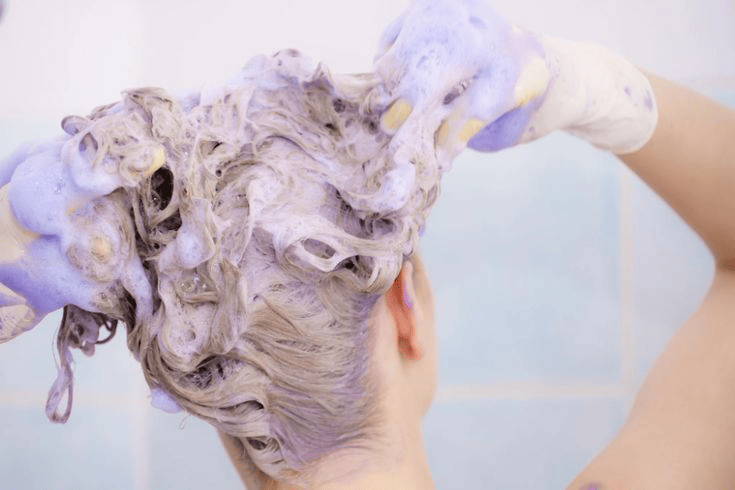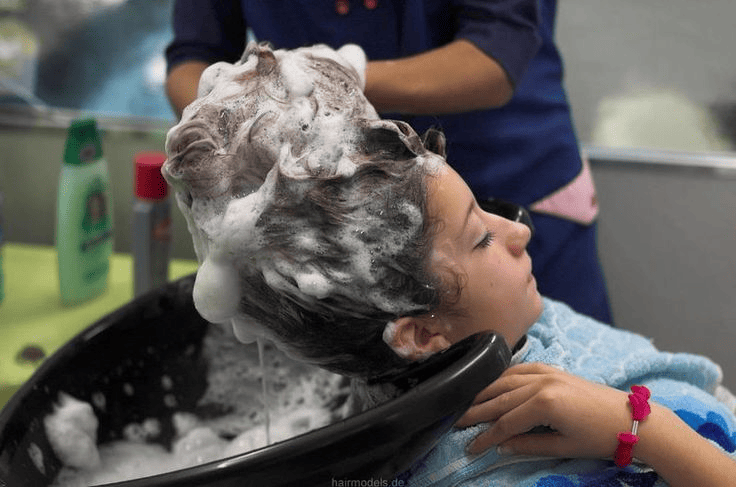Is Shampoo Bad for Your Hair
Shampoo itself is not inherently bad for your hair, but it’s important to use it properly and choose the right products. Here are some considerations:
Overuse: Excessive shampooing can strip your hair of its natural oils, which are essential for maintaining healthy and hydrated hair. Washing your hair every day may not be necessary for most people. How often you should shampoo depends on your hair type and lifestyle.
Choice of Shampoo: The type of shampoo you use can make a difference. Some shampoos contain harsh chemicals like sulfates that can be drying and damaging to hair. Consider using a sulfate-free or mild shampoo, especially if you have dry or sensitive hair.
Conditioning: Following up with a conditioner after shampooing is essential. Conditioners help restore moisture and nutrients to your hair, making it smoother and more manageable.
Hair Type: Different hair types have different needs. For example, curly hair may benefit from less frequent washing and more moisture, while oily hair might require more frequent washing with a gentle shampoo.
Styling Products: If you use a lot of styling products, make sure to use a clarifying shampoo occasionally to remove product buildup. However, don’t overuse clarifying shampoos, as they can be too harsh for regular use.
Proper Technique: When shampooing, be gentle. Don’t vigorously rub your hair, as this can lead to breakage. Instead, gently massage the shampoo into your scalp and let it run through your hair as you rinse it out.
Diet and Lifestyle: Your hair’s health is also influenced by your diet and lifestyle. Eating a balanced diet, staying hydrated, and managing stress can positively impact your hair.
Individual Variations: Keep in mind that what works for one person may not work for another. Hair care is highly individual, and you may need to experiment to find the right routine for your specific hair type and needs.
In summary, shampoo can be a part of a healthy hair care routine, but it’s important to use it judiciously, choose the right product for your hair type, and follow up with conditioning. Proper hair care goes beyond shampoo and involves a holistic approach to maintaining healthy and beautiful hair. Read more: How to Style a Shag Haircut
Understanding Shampoo Ingredients
To determine if shampoo is harmful to your hair, it’s crucial to understand its ingredients. Shampoos typically consist of water, detergents, conditioning agents, and various chemicals. The detergents, such as sulfates, are responsible for cleaning your hair by removing dirt and oils. However, some harsh chemicals in shampoo can strip your hair of its natural oils, making it dry and brittle.
 The Role of Natural Oils
The Role of Natural Oils
Natural oils produced by your scalp play a vital role in keeping your hair healthy. These oils moisturize your hair, provide a protective barrier, and contribute to its shine and softness. Shampooing too frequently can lead to the removal of these essential oils, which may result in hair problems. Also Read this Article: Should You Wash Your Hair Before a Haircut
Overwashing and Its Effects
Overwashing your hair is a common mistake. Excessive shampooing can lead to the loss of natural oils, leaving your hair dry and prone to damage. It’s essential to find the right balance between cleanliness and preserving your hair’s natural moisture.
Shampoo for Different Hair Types
The impact of shampoo on your hair can vary depending on your hair type. Different hair types require different care. We’ll explore suitable shampoos for straight, curly, thick, and fine hair, ensuring you choose the right product for your specific needs.
Common Hair Problems and Shampoo
We will discuss common hair problems like dandruff, split ends, and hair loss and how shampoo can either exacerbate or alleviate these issues. Understanding the connection between your shampoo and hair problems is crucial for maintaining healthy hair.
Tips for Using Shampoo Wisely
To ensure that shampoo doesn’t harm your hair, follow these tips for using it wisely. We’ll provide guidance on the right amount of shampoo, correct application techniques, and rinsing to minimize any potential negative effects.
 Sulfate-Free Shampoos
Sulfate-Free Shampoos
Sulfates are a common ingredient in many shampoos, known for their cleansing properties but also their potential to strip natural oils from your hair. We’ll explore sulfate-free shampoos as an alternative that can be gentler on your hair while maintaining cleanliness.
Organic and Natural Shampoos
Organic and natural shampoos have gained popularity as people seek healthier alternatives. We’ll discuss the benefits of using these products and how they can contribute to the overall health of your hair.
DIY Shampoo Alternatives
For those who prefer more natural options, we’ll provide DIY shampoo alternatives that you can make at home. These alternatives often use natural ingredients that are gentle on your hair.
Hair Care Routine
A proper hair care routine goes beyond just shampoo. We’ll discuss the importance of conditioning, hair masks, and regular trims to keep your hair in its best condition.
Conclusion
In conclusion, the impact of shampoo on your hair depends on various factors, including the ingredients in the shampoo, your hair type, and how often you wash it. While shampoo is essential for cleanliness, overuse and choosing the wrong product can lead to hair problems. To ensure that shampoo benefits your hair, make informed choices and consider alternative options like sulfate-free and organic shampoos.
FAQs
Q. Is shampoo harmful to all hair types?
A. Shampoo’s impact varies by hair type. It’s not harmful to all, but choose the right one for your specific needs.
Q. How often should I wash my hair with shampoo?
A. Washing frequency depends on your hair type; typically, every 2-3 days for most, but adjust to your needs.
Q. Are sulfate-free shampoos better for hair health?
A. Yes, sulfate-free shampoos are gentler, making them a good choice for sensitive or dry hair.
Q. Can I use natural oils instead of shampoo?
A. Natural oils can’t replace shampoo entirely. Use them as a treatment or conditioner, not a substitute.
Q. Best way to maintain healthy hair with shampoo?
A. Use a balanced diet, protect from heat and sun, get trims, and follow a holistic hair care routine.
